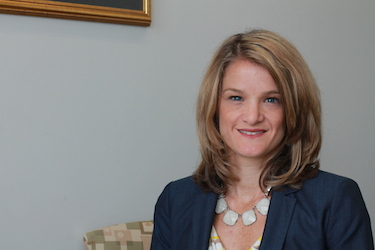 |
|
|
Nancy Byatt, DO |
UMass Medical School perinatal depression expert Nancy Byatt, DO, MBA, fully supports the new U.S. Preventive Services Task Force recommendation that pregnant and postpartum women be screened for depression.
“It is well established that depression during pregnancy and postpartum can have a negative impact on mothers, children and families,” said Dr. Byatt, assistant professor of psychiatry and obstetrics & gynecology. “Detection is the first step to help women get the mental health care and support that they need and deserve.”
Key to the USPSTF recommendations, published in the January 26 issue of JAMA, is that screening should be implemented with adequate systems in place to ensure accurate diagnosis, effective treatment and appropriate follow-up, such as that available via the Massachusetts Child Psychiatry Access Program for Moms. Byatt is medical director of the program, which promotes maternal and child health by building the capacity of providers serving pregnant and postpartum women and their children up to one year after delivery to effectively prevent, identify and manage depression.
“As the recommendation notes, depression screening needs to be done in conjunction with interventions that ensure adequate provision of mental health care. Building the capacity of the medical providers who serve pregnant and postpartum provides a solution,” said Byatt, who was instrumental in the design and launch of MCPAP for Moms. “Women who are pregnant and postpartum have regular contact with health care providers. Each of these visits provides an opportunity to screen and engage women in treatment.”
MCPAP for Moms trains obstetric practices in how to detect, assess and manage depression. It also works with pediatricians, who also have frequent interactions with pregnant and postpartum women. Since its inception in 2014, 44 percent of obstetric providers across the state have accessed MCPAP for Moms services, and the program has served more than 1,000 women.
“We encourage and help increase access to all the available treatment options including individual psychotherapy and support groups as well as medication when it is indicated,” said Byatt.
“While psychotherapy is the mainstay of treatment, it is imperative that thoughtful and individualized patient discussions take into consideration not only the risk of the medication, but also the risk of the illness itself. Getting help is the best thing an expectant mom can do for herself and her baby.”
Related links on UMassMedNow:
Perinatal depression expert urges calm on study linking antidepressant use to autism
Byatt tells Reuters Health new study will help pregnant women decide about antidepressants
Expert’s Corner: Consider all options for treating depression during pregnancy
More help on the way for Mass. women with depression during and after pregnancy
Byatt to Telegram & Gazette: postpartum depression can interfere with mother-child bond